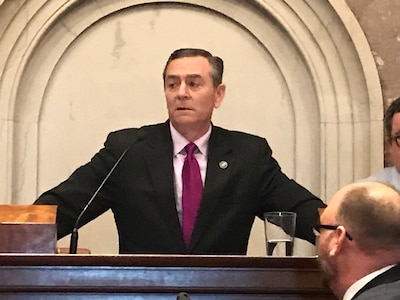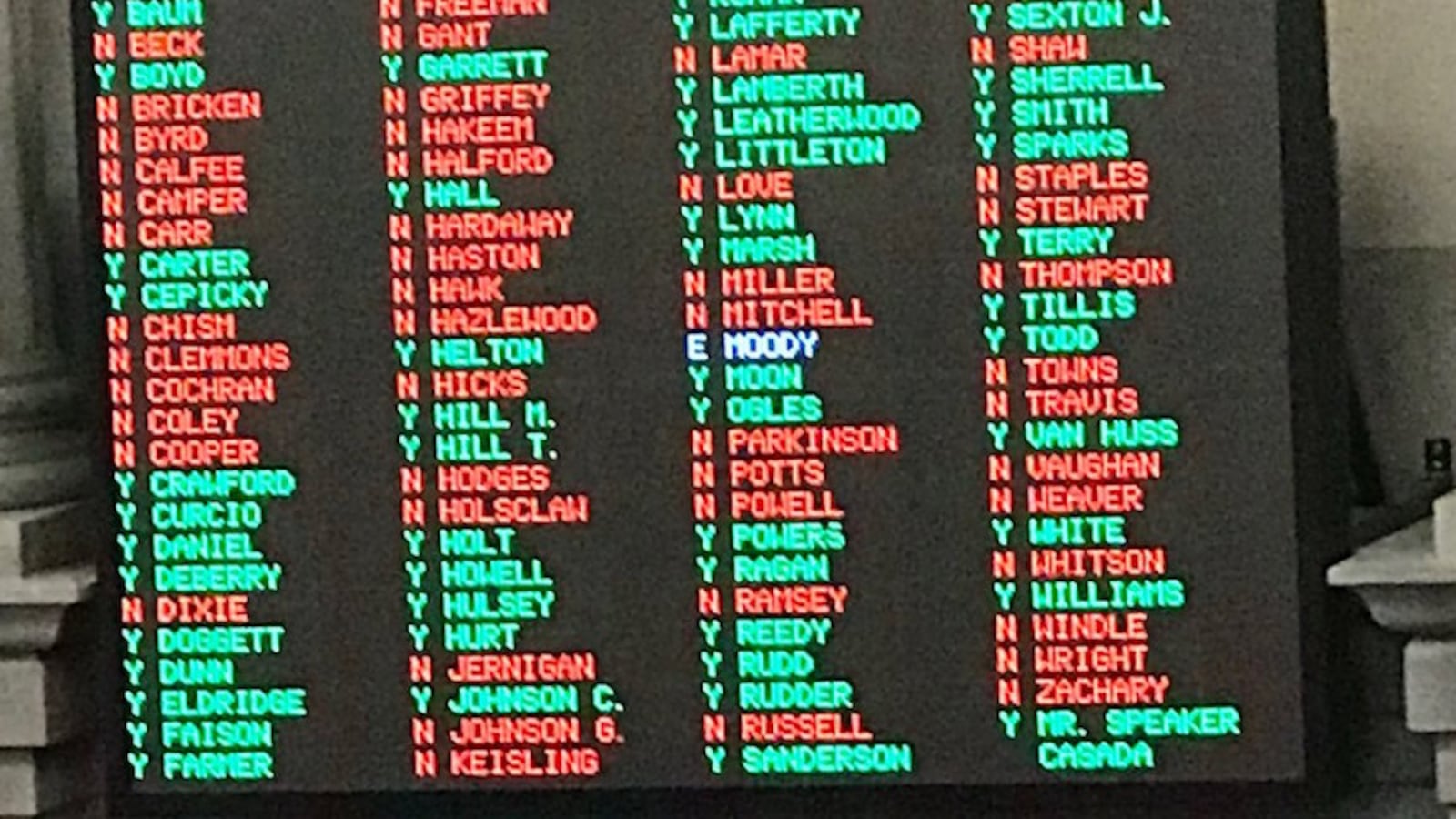One day after a questionable parliamentary maneuver changed the outcome of a historic vote in Tennessee’s House of Representatives, opponents of Gov. Bill Lee’s education voucher proposal are reviewing whether the proceedings could be legally challenged should the controversial legislation become law.
Rep. Mike Stewart, who chairs the legislature’s Democratic caucus, said the legitimacy of Tuesday’s 50-48 vote is in question due to the actions of House Speaker Glen Casada as the chamber’s presiding officer.
Meanwhile, a group of pastors — who oppose the governor’s plan to give parents taxpayer money to pay for private education services — decried the tactics of Casada and the Lee administration as “an egregious violation of legislative procedure and good faith democratic process.”
Their concerns could be moot, however, if the voucher bill fails in the Senate, where another close vote is expected on Thursday.
“Let’s wait and see,” Stewart said Wednesday of the House’s first-ever approval of voucher legislation after years of attempts. “But I do think that what occurred in the House violated the chamber’s rules and may have violated the state Constitution.”
The controversy erupted after more than two hours of contentious debate Tuesday when the House vote was deadlocked at 49-49 because Rep. Debra Moody, considered a solid “yes” vote, was absent for her mother’s funeral. A tie means the bill fails.
But instead of immediately ordering the vote to be tallied on the House’s electronic board as is customary, Casada paused the proceedings without explanation and spoke with lawmakers from both parties on a back porch behind the House chamber. When the speaker returned 38 minutes later, Rep. Jason Zachary, who was part of those discussions, flipped his vote from “no” to “yes” to break the tie and pass the governor’s signature education initiative.
Zachary, a Knoxville Republican, later told reporters that his change of heart came after the speaker assured him that Knox County would be excluded from the pilot voucher program when the final legislation is hashed out in a conference committee.
Casada, a Franklin Republican who wants to deliver a major victory to the state’s new Republican governor, said the delay was an attempt to give legislators time to think about their votes before taking a final tally.

Lee quickly tweeted his thanks to Casada, and his press secretary declined to comment on Wednesday when asked about the speaker’s tactics. The governor says education savings accounts will give parents more education choices for their children, especially for students from low-income families who attend failing schools
But Pastors for Tennessee Children, an ecumenical group that formed last fall to advocate for high-quality public education, said the proceedings were in line with a “corrupt voucher policy” that ultimately will hurt economically disadvantaged children.
“Instead of respecting the integrity of House members to vote in the best interests of their constituents and Tennessee’s children, Governor Lee [through Casada] manipulated and threatened individual state representatives to change their vote,” the group said in a statement.
With students in school districts in Memphis, Nashville, and Chattanooga still in play for the proposed program, Stewart said he would expect a lawsuit from one or more of them if the governor’s proposal becomes law. Under Lee’s plan, the state would give participating families public funds to pay for private school or other education services when they pull their children out of public schools.
“Any time a bill is constitutionally suspect, someone emerges to challenge it,” Stewart said. “I don’t think people are just going to sit back and allow their school systems to be defunded by a bill that was improperly passed.”
The parliamentary tactic was not without precedent, though.
Former Speaker Jimmy Naifeh, a Democat from Covington, delayed a vote tally for two hours in 2002 but failed to convince lawmakers to approve a state income tax.

